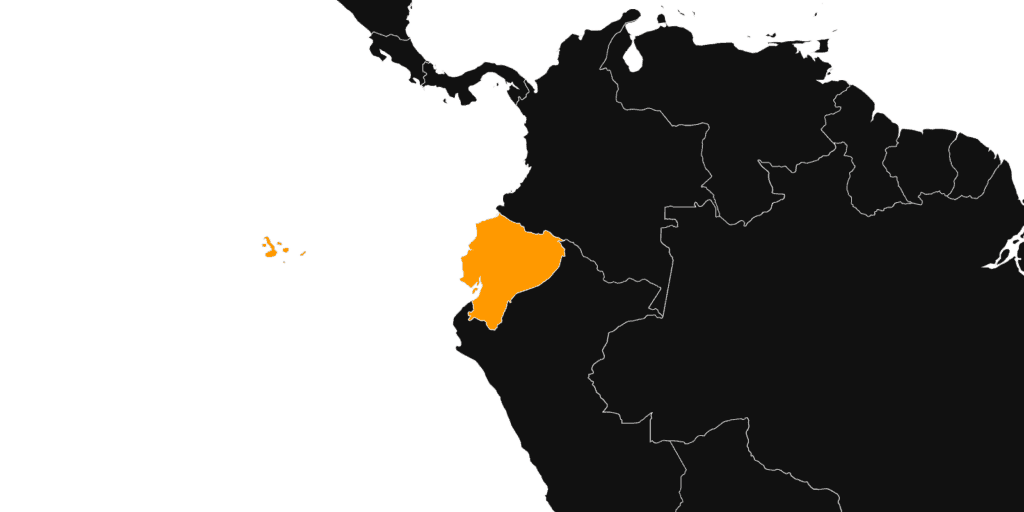
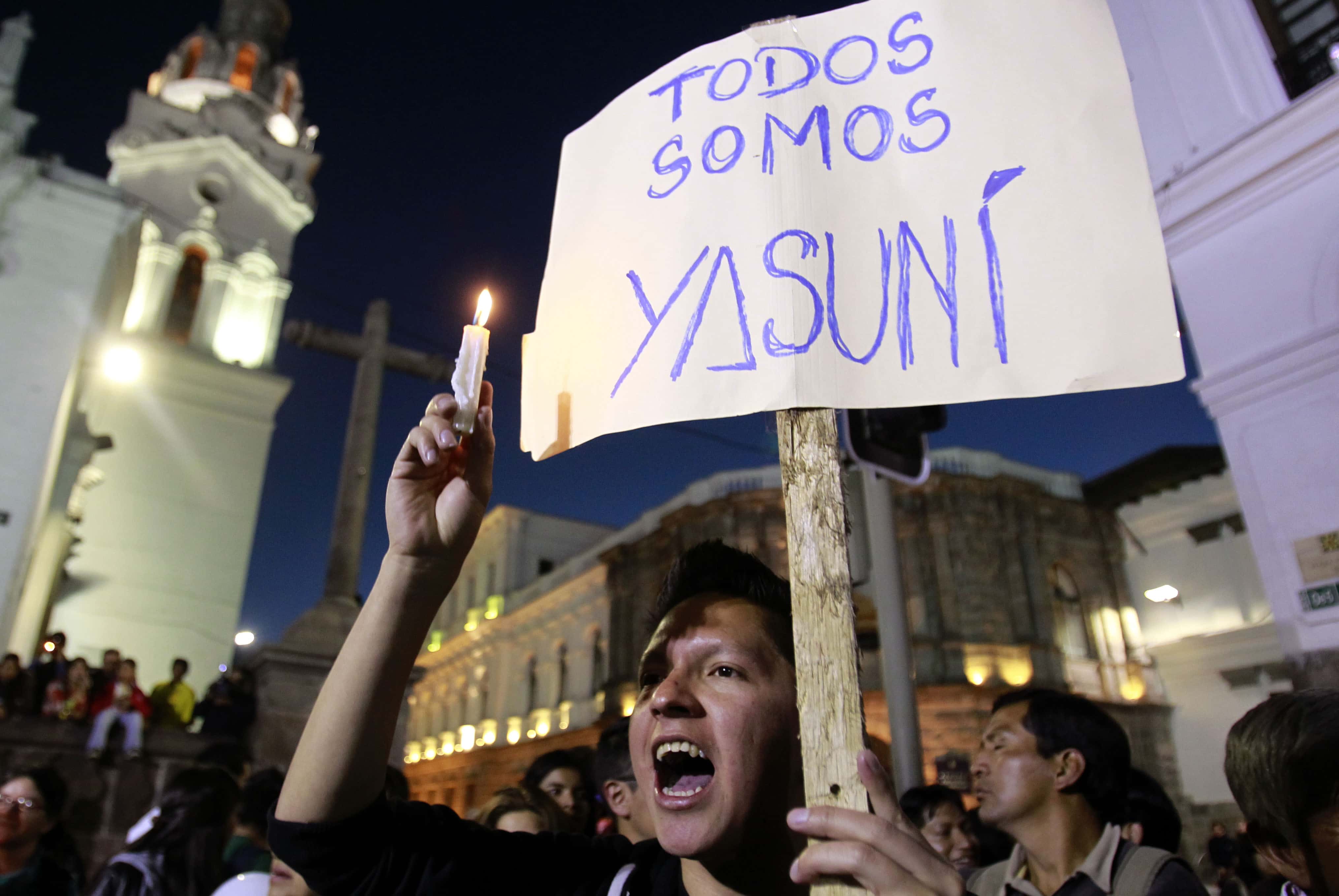
President discredits Ecuadorian journalist reporting on oil exploitation
Rafael Correa, in his Weekly National Broadcast, belittled student Miguel Molina over an opinion article he wrote and shared a video the government made based on personal photos from Molina’s Facebook account.

Twitter hashtag targets Ecuadorian songwriter who insulted the president
Since the early hours of September 7, 2013, the hashtag #UnPuñeteParaGuevara (A punch for Guevara) has been circulating on Twitter, with several messages that insult and promote violence against songwriter Jaime Guevara who had given a “middle finger” gesture to the presidential caravan.

Ecuadorian journalist acquitted of “terrorism” charges
An Esmeraldas court has acquitted journalist Juan Alcívar of the crime of “terrorism against a public servant”, for supposedly throwing a pepper gas bomb inside a venue where President Rafael Correa was visiting on July 19, 2010.

Minister gives ultimatum to three Ecuadorian papers in midst of protests
The Minister of the Interior, José Serrano, summoned the press to an urgent conference on August 27, 2013 and gave a 24-hour ultimatum to three newspapers, before he would use the Communications Law to penalise them over publications regarding public demonstrations.

Documentary directors report censorship by cinemas in Ecuador
On August 11, 2013, film makers Manolo Sarmiento and Lisandra Rivera, who directed the documentary “The Death of Jaime Roldós” ( “La Muerte de Jaime Roldós” ), reported online that the El Rosado Corporation, which owns the movie theater chain “Supercines”, refused to show the documentary in its movie theaters for “its content”. The documentary […]

Decree gives government far-reaching powers over NGOs in Ecuador
Ecuador should revoke a presidential decree that grants far-reaching powers to the government to oversee and dissolve nongovernmental organizations, says Human Rights Watch.
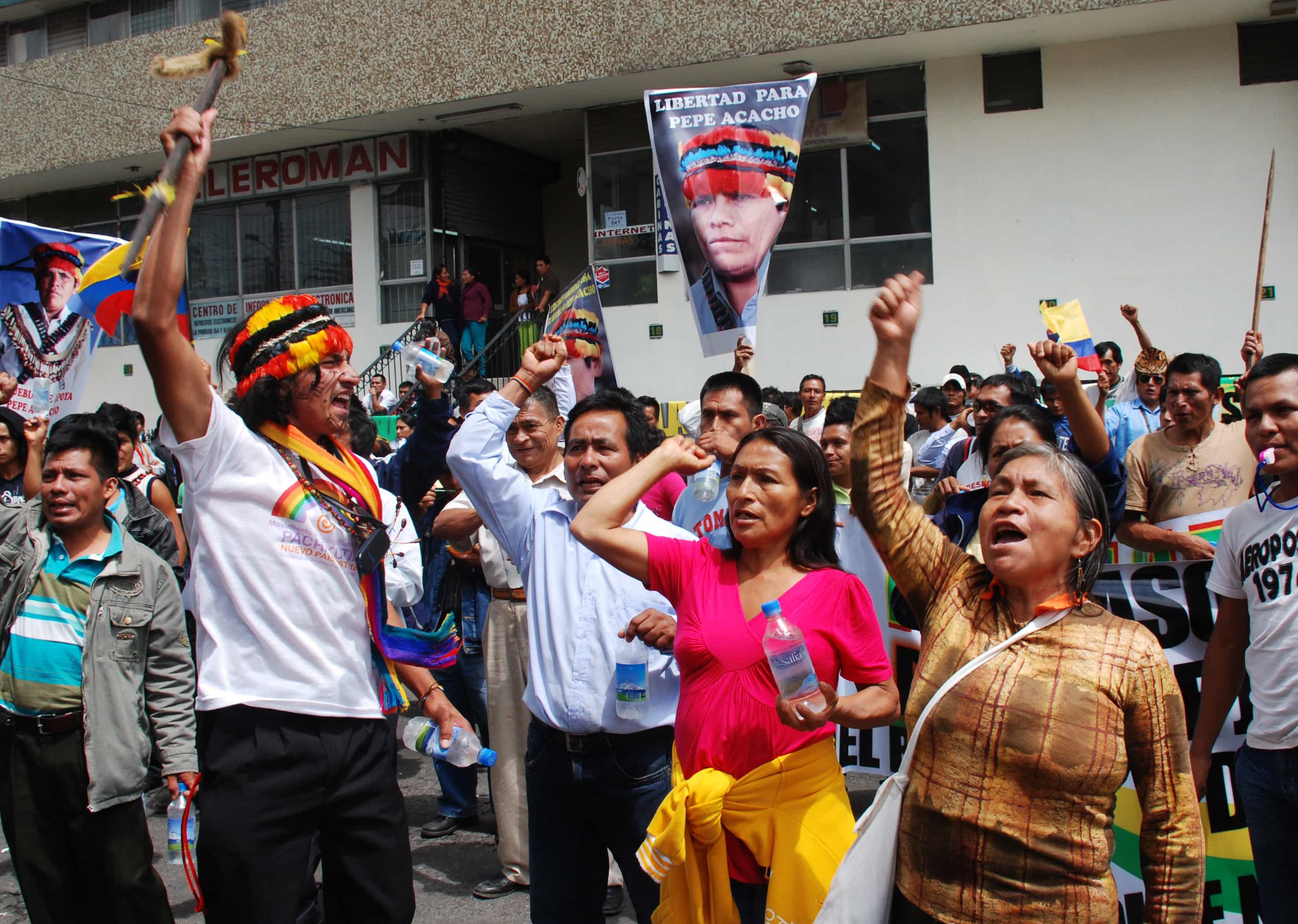
In Ecuador, indigenous leaders sentenced to 12 years in jail for “terrorism”
Pepe Acacho and Pedro Mashiant were sentenced to 12 years in jail for the crime of “organized terrorism.” The case extends back to public protests against the Water Law by indigenous communities on September 30, 2009, when violent clashes among the police and civilians took place.

Government secretariat imposes broadcasts on private TV station in Ecuador
Two broadcasts ordered by the Secretariat of Communications (SECOM) in early August interrupted Ecuavisa’s news segment. These broadcasts were ordered as a right of reply, even though they did not comply with the recently approved Communications Law.
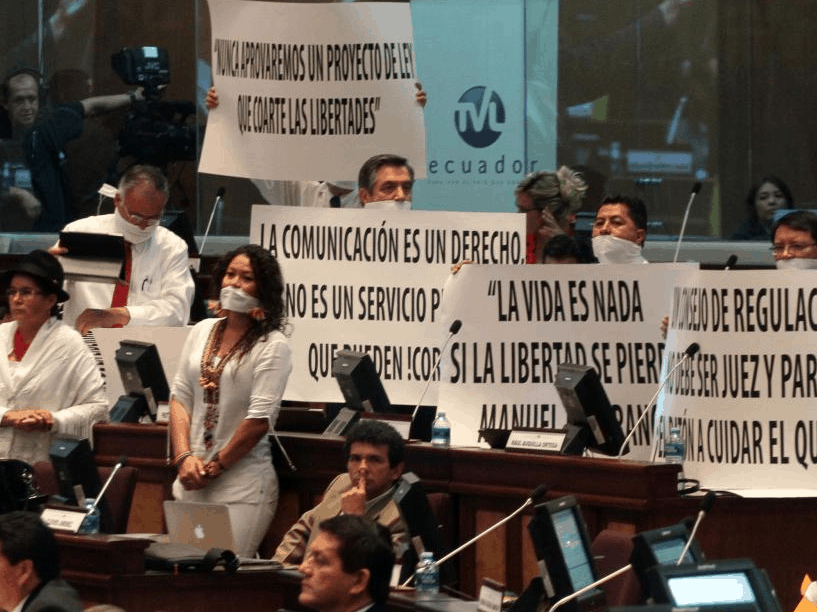
Groups call for review of Ecuador’s restrictive communications law
Over 30 IFEX members write to President Rafael Correa, calling on him to submit the recently-approved Ecuadorian Communications Law to the Inter-American Court of Human Rights for a Consultative Opinion.

News director in Ecuador receives threatening letter
Cuesta Caputi posted a screen shot of the death threat he received that read: “If you keep doing so well, you die”. Cuesta wrote in his Twitter account: “I received this threat yesterday. I guess someone is upset about my journalistic work”.
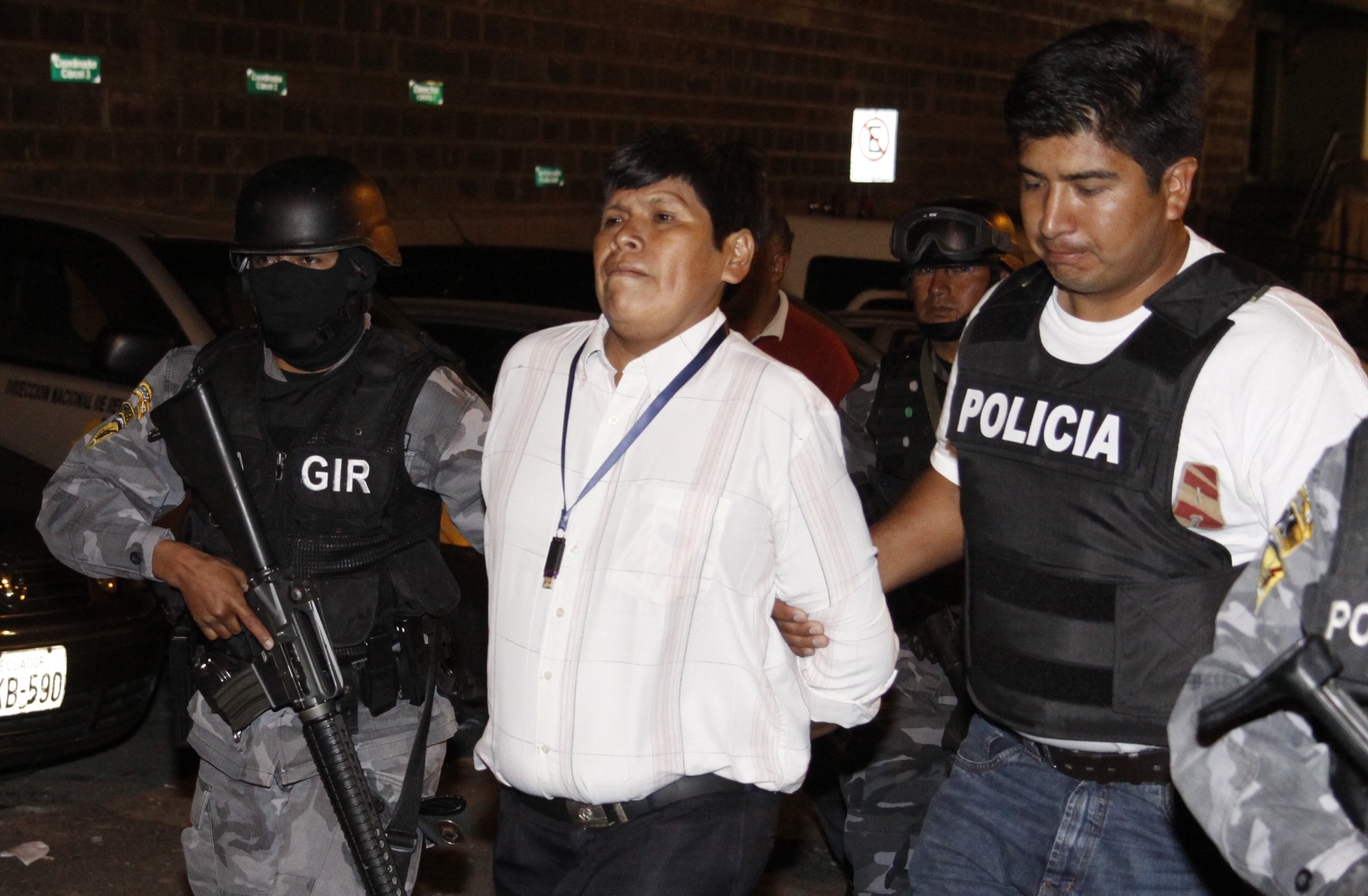
Ecuadorian appeals court confirms conviction of indigenous leaders
On July 19, 2013, the Appeals Court of Morona Santiago confirmed a decision that condemned indigenous leader and national congressman Pepe Acacho, as well as indigenous leader Pedro Mashiant for crimes of sabotage and terrorism; the case is related to public protest that occurred on September 30, 2009.
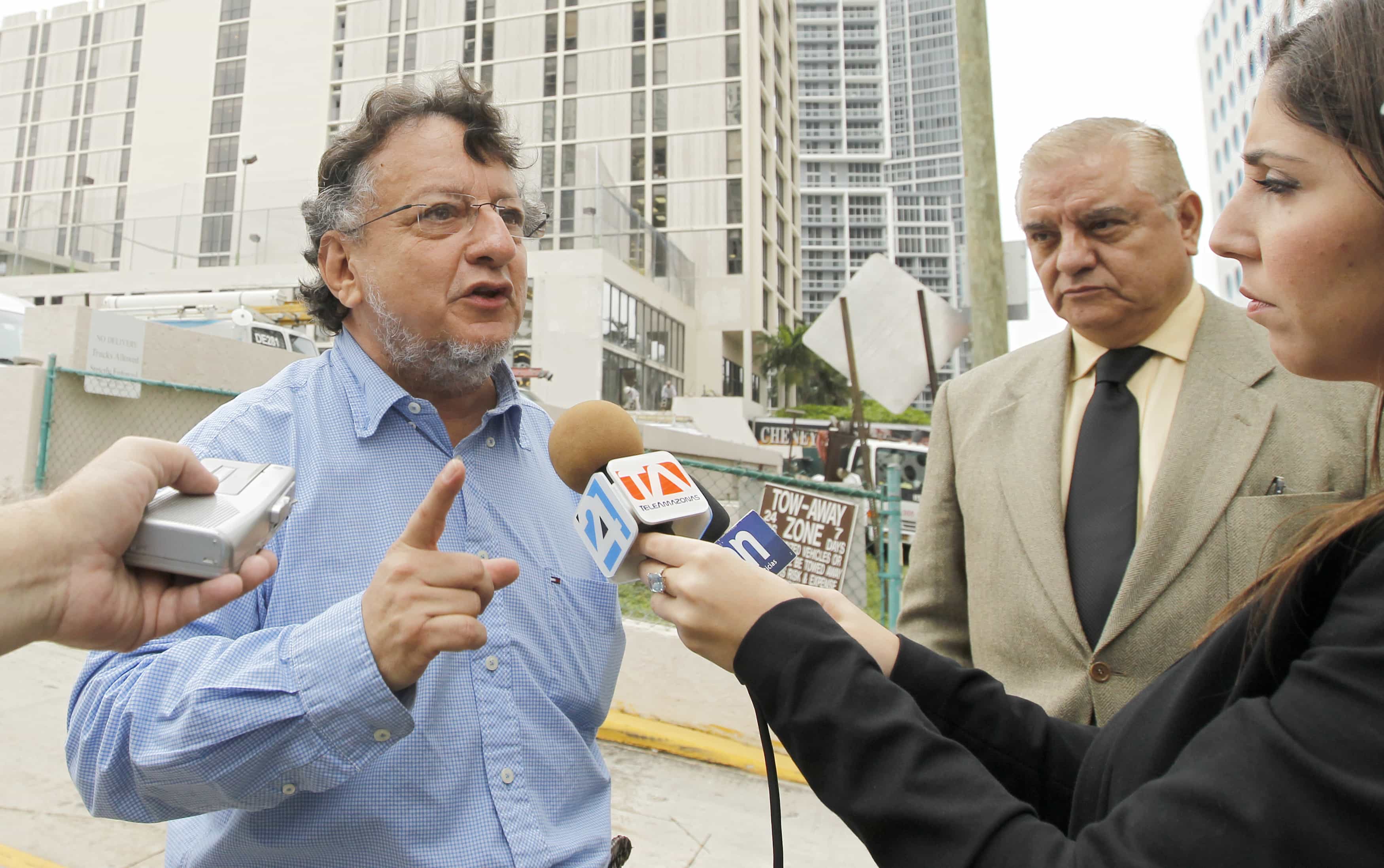
Exiled journalist attacked by Ecuadorian consul in U.S.
Emilio Palacio, former opinion editor of Diario EL Universo was attacked by people from the Ecuadorean Consul in Miami, Florida. Palacio was at the Miami Airport covering the visit of President Correa’s wife to the U.S.

Ecuadorian police hold television reporter for 16 hours
On 15 July 2013, Ivan Casamen was detained by a police officer while covering a story on the collapse of a tunnel.The journalist was held for over 16 hours, while waiting for a hearing. He was then released after paying a fine of US$7.

Ecuador’s new law dispels myth of “media democratisation”
“Democratizing the media” is a common refrain in Latin America these days. While the phrase may suggest a process that would lift restrictions on media and increase citizen access, it has been invoked to support policies that do the opposite.

Judge in Ecuador orders newspaper to correct headline
Judge Verónica Medina ruled that Diario Hoy must correct a headline that read “Correa says that gay marriage is just a fad”, reasoning it “was not duly verified” and “twists the truth”. The judge determined that the right to receive verified and true information had been violated, and ordered the newspaper to apologize.

Ecuador’s national assembly approves communication law
Along the approval process, the Communications bill had been observed by international agencies and organizations such as the Special Rapporteur for Freedom of Expression, Human Rights Watch, and the Committee to Protect Journalists, among others, because it did not comply with international standards on freedom of expression.